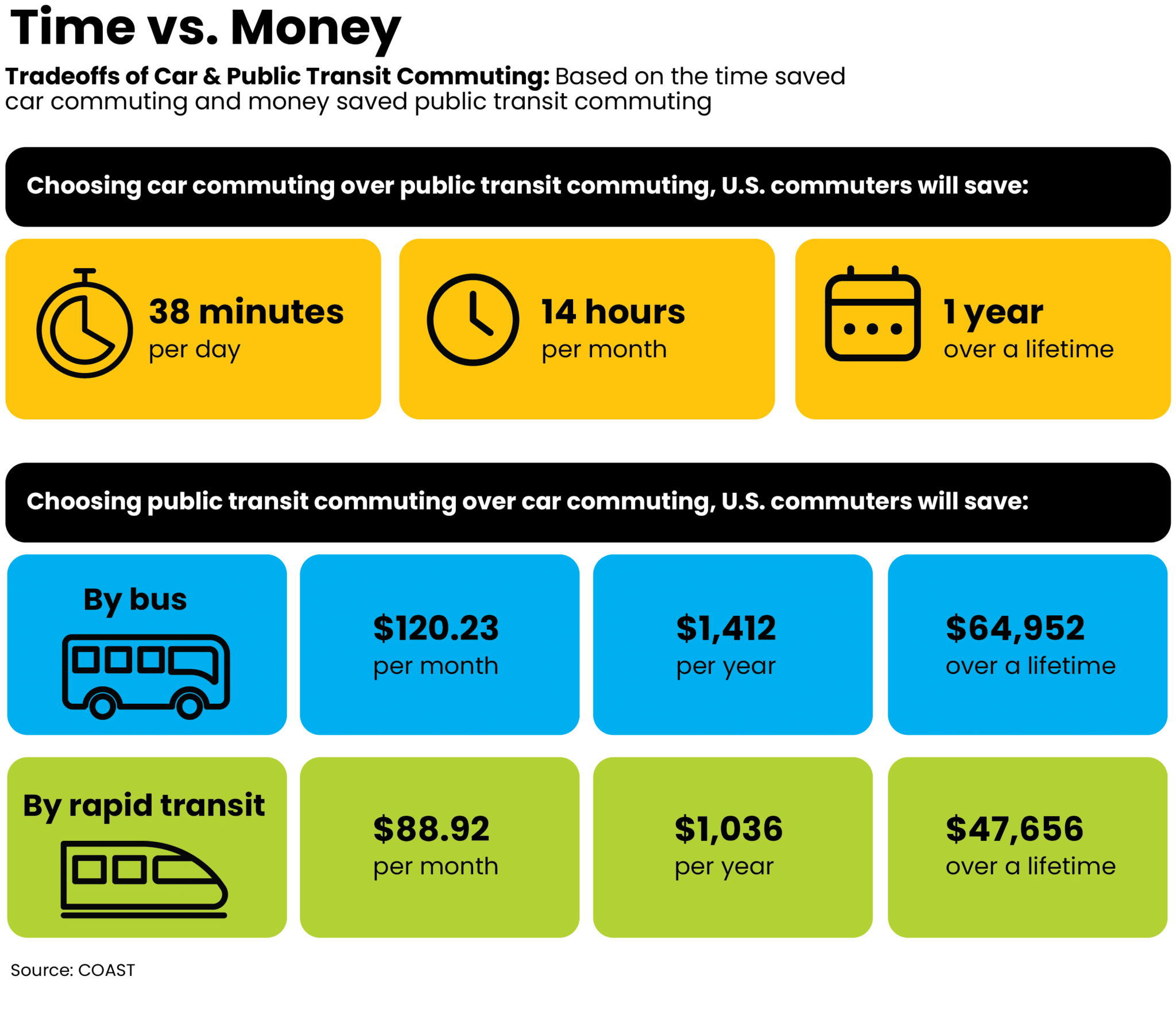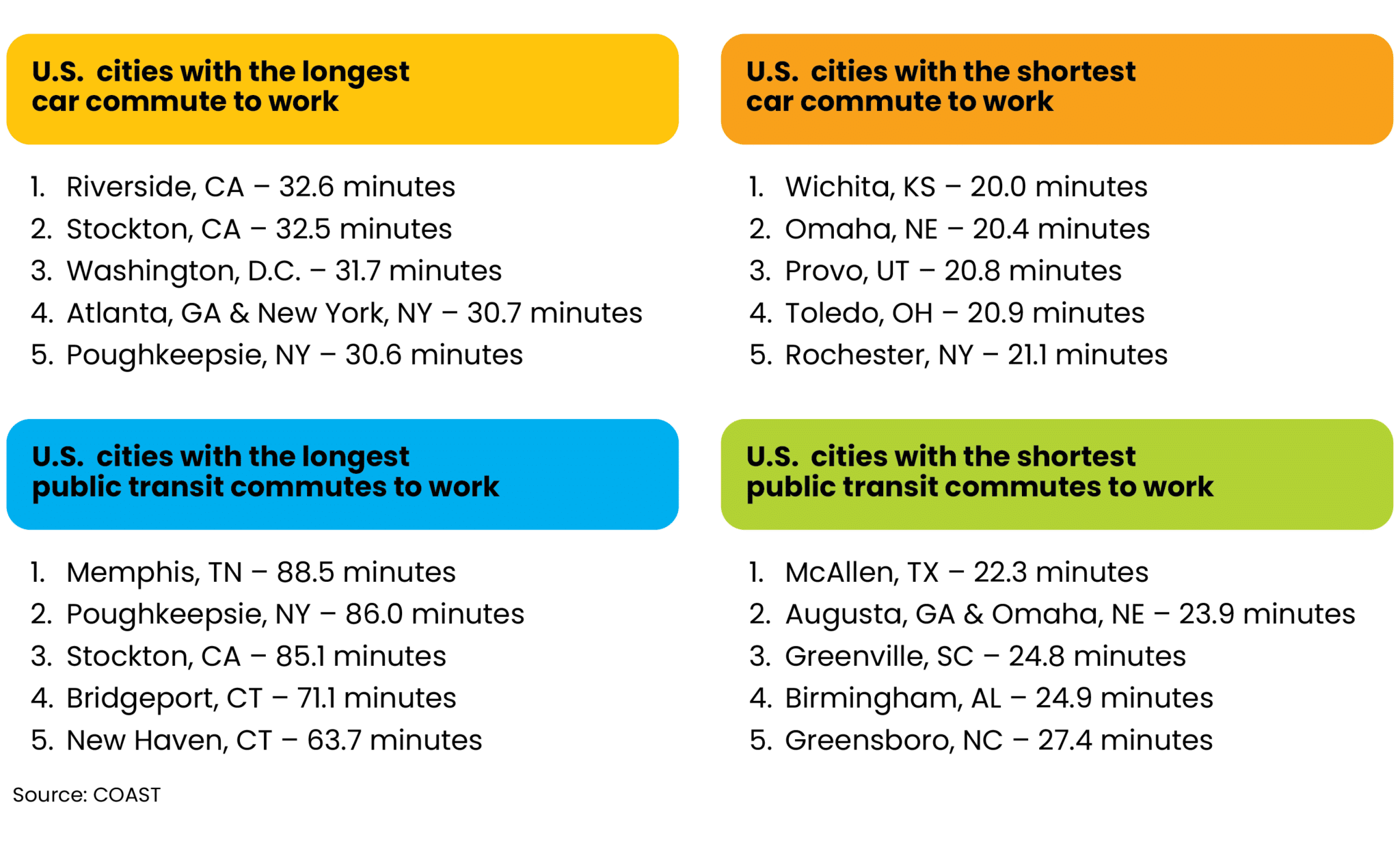A new study reveals which U.S. cities have the longest and shortest commutes and highlights the tradeoff between the speed of taking the car versus the savings of going by mass transit.
The report by Coast, a New York-based financial services company offering smart fuel cards for vehicle fleets, looked at commute times, distances and costs in the top 100 U.S. metro areas.
 On average, commuting by car is 38 minutes faster per day than public transit, but transit users save from $600 to $976 per year, according to the study. The average car commuter spends 25.4 minutes per day commuting, or nearly 19 hours per month and over a year throughout their working life. Public transit commuters spend an average of 44.6 minutes per day commuting, or more than two years throughout their working lifetime.
On average, commuting by car is 38 minutes faster per day than public transit, but transit users save from $600 to $976 per year, according to the study. The average car commuter spends 25.4 minutes per day commuting, or nearly 19 hours per month and over a year throughout their working life. Public transit commuters spend an average of 44.6 minutes per day commuting, or more than two years throughout their working lifetime.
The city with the longest car commute is Riverside, Calif., and the shortest is Wichita, Kan. The city with the longest public transit commute is Memphis, Tenn., and the shortest is McAllen, Texas.








